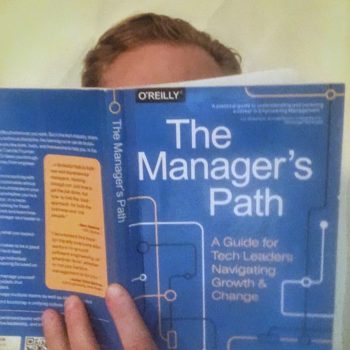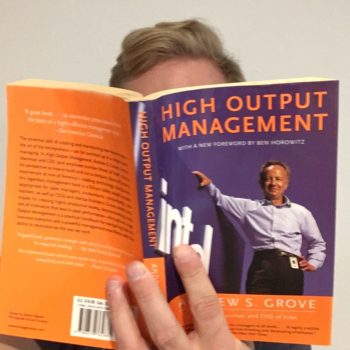How strongly do I recommend The Making of a Manager?
8 / 10
Review of The Making of a Manager
The Making of a Manager is particularly good for new managers, both in software engineering and in related fields like design.
This book covers the basics of people management and I appreciated that lessons felt applicable outside of FAANG/SV companies.
Top Ideas in This Book
- What would be different about the world if your team were wildly successful?
- Additive vs. multiplicative value
- Find a management mentor without asking
- Framing your worries as questions feels disingenuous
- Hiring is an opportunity to build the future
- Be upfront with colleagues that you need time to transition and ramp up
- Great managers get others to improve under their coaching
- The key question you should ask yourself is whether the feedback you provide is leading to the change you hope to see. Most new managers provide indirect and slow feedback, fail to see the change they want, then become frustrated and lost. Direct and fast feedback often improves the situation, resulting in the changes the manager hopes to see.
- Great leadership hires have organizational impact for years to come
- People watch their boss closely to understand organizational values and norms
What would be different about the world if your team were wildly successful?
I like this question, but I gain more from reframing it from an engineering manager’s perspective. What would be different about your company if your team were wildly successful?
If your answer is “not much” then I don’t have any advice. Maybe get a new job because yours sounds super depressing.
But in the world of SaaS and software development, product and engineering teams carry an enormous responsibility. When our teams are wildly successful, great things are usually happening for the company.
Additive vs. multiplicative value
Zhuo provides a lemonade stand example. If you’re personally selling the lemonade, your contributions are additive. When you lead a team of sellers (or engineers in our case) your contributions have the opportunity to be multiplicative.
Additive vs. multiplicative is what Andy Grove would call “leverage” in High Output Management but I love Zhuo’s terminology because she provides direct comparison.
Imagine speaking with a senior engineer during a performance review – the additive vs. multiplicative language can provide clarity on where they are now vs. where they need to go.
Find a management mentor without asking
The Making of a Manager is sprinkled with examples of mentorship that Julie Zhuo received at Facebook, notably from Chris Cox, the company’s current Chief Product Officer.
She provides one solid piece of advice – don’t ask someone to be your mentor. That’s lame. Instead, ask someone you trust for specific advice on a situation.
Framing your worries as questions feels disingenuous
Introducing conflict doesn’t come naturally or comfortably for many people. As a manager confronting a subordinate about poor performance, you might be tempted to offload the confrontation with questions.
How do you think the team performed on that project? What role did you play in that performance? What would you do differently?
Leading questions feel disingenuous. You’re asking them because you’re afraid of the conflict, not because questions are better at producing change.
Shooting straight with people builds trust, but it requires courage from you the manager. For more on this topic read Difficult Conversations.
Hiring is an opportunity to build the future
Zhuo writes, “Hiring is not a problem to be solved but an opportunity to build the future of your organization.”
Wow, I love it. This quote is now the first slide on my Interview Prep presentation deck.
When recruiting and hiring, I find myself trying to solve immediate problems. We’ve got a shortage of frontend skill. We need someone who can restructure our data systems for improved performance. Our design team needs more firepower.
Zhuo asks, “What do you hope will be your team’s reputation in a few years?” Your current hiring problem is actually an opportunity to shape your team’s future reputation.
Be upfront with colleagues that you need time to transition and ramp up
When entering a new management role, take the opportunity to connect with your colleagues and reports by telling them the road will have some bumps as you make the transition. This act of vulnerability will help set their expectations and tone for the team.
Great managers get others to improve under their coaching
The key question you should ask yourself is whether the feedback you provide is leading to the change you hope to see. Most new managers provide indirect and slow feedback, fail to see the change they want, then become frustrated and lost.
Direct and fast feedback often improves the situation, resulting in the changes the manager hopes to see.
The key question you should ask yourself is whether the feedback you provide is leading to the change you hope to see. Most new managers provide indirect and slow feedback, fail to see the change they want, then become frustrated and lost. Direct and fast feedback often improves the situation, resulting in the changes the manager hopes to see.
When you treat your manager as a judge, you hide your weaknesses. You’re afraid of being exposed. Unfortunately when that happens you aren’t developing your skills. Rather than hiding your weaknesses, discuss them and seek out their advice toward strengthening your skills.
Not sure what your weaknesses are? Ask your manager. For instance, you might ask, “What skills should I focus on developing to have more impact?”
Great leadership hires have organizational impact for years to come
Do not approach leadership hires haphazardly. Make sure you are in the right mindset and not feeling panicked when hiring for leadership positions because hasty decisions will come back to bite you.
Conversely, a great leadership hire will guide and strengthen the organization, growing new leaders to follow in their footsteps.
People watch their boss closely to understand organizational values and norms
Employees respond sharply to instances of hypocrisy. If you talk about code and system quality but then tell software engineers that tests aren’t important, they will see your hypocrisy and you will lose their trust.
People watch your actions more than listen to your words. Make sure your actions and words are always aligned and your team will become a reflection of you.










